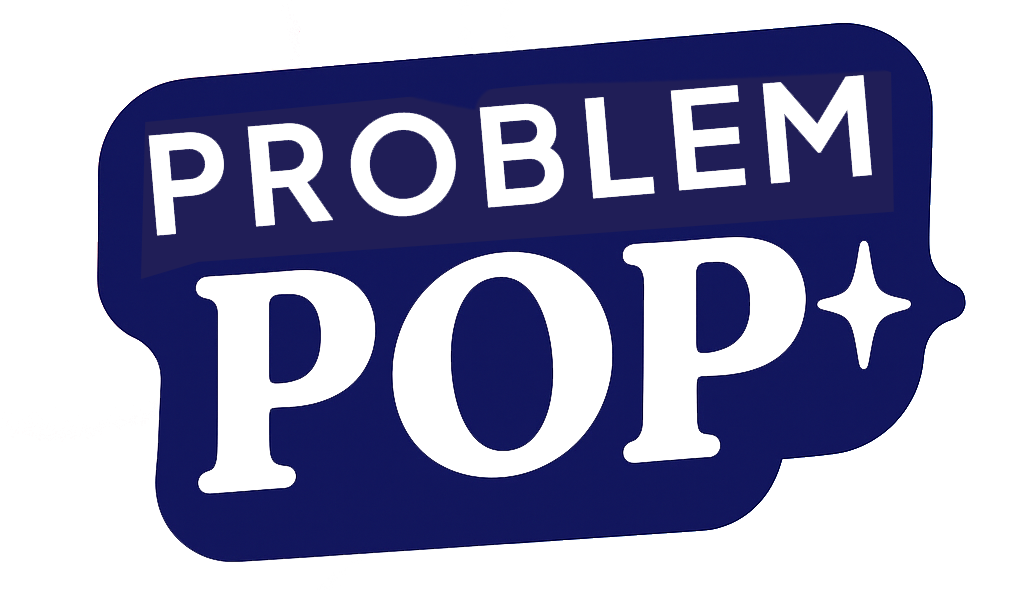SEO for Founders: A No-Nonsense Guide to Getting Your First 100 Organic Visitors
Right, let's cut through the SEO waffle, shall we? You've built something brilliant, but Google's treating you like you don't exist. Here's how to fix that without drowning in jargon or spending your life savings on consultants who love buzzwords more than results.
The SEO Struggle: How Mere Mortals Get Their First 100 Organic Visitors
Let's address the elephant in the startup room, shall we? You've built something brilliant, but your website has all the traffic of a country lane at 3 AM. Google doesn't know you exist, and frankly, neither does anyone else. The cruel irony of SEO is that those who need it most (hello, fledgling founders) understand it least. It's like being handed a nuclear physics textbook when you've just asked how to turn on a light.
Having watched my own meticulously crafted candle business website sit in the lonely corners of Google's index, I've learned that SEO isn't the mystical beast that requires virgin sacrifices and alignment of planets. It's just persistently annoying work that nobody wants to do, but everyone must. So let's skip the "SEO is important" lecture (you wouldn't be reading this if you didn't already know that) and get to the actual useful bits.
The Brutal Truth About Your First 100 Visitors
First, a reality check: those initial 100 organic visitors won't arrive because you've built the perfect SEO machine. They'll come because you've managed to create something that doesn't actively repel Google. There's a difference.
The truth that most SEO experts won't admit is that in the beginning, you're not optimising for algorithmic perfection – you're just trying not to be invisible. It's less about being the prettiest belle at the ball and more about simply getting your name on the guest list.
When my business was gasping for digital air, I learned that before the fancy keyword research tools and link building campaigns, there's a more fundamental question: can Google even see you? And if it can, does it have any earthly idea what you're trying to say?
Technical SEO: The Unsexy Foundation No One Talks About
Here's where I wish someone had grabbed me by the shoulders earlier: before you worry about keywords and content calendars, make sure your site isn't a technical disaster. It's like worrying about your outfit when your house is on fire.
The technical bits aren't glamorous, but they're the difference between being completely invisible and having a fighting chance. And the good news? You can handle most of this yourself, even if your technical knowledge extends only as far as setting up a particularly challenging IKEA bookshelf.
- Install Google Search Console and submit your sitemap. It's free, it takes 10 minutes, and it's literally telling Google "hello, I exist."
- Check that your site loads in less than 3 seconds. Nobody waits anymore. Not your customers, not Google. Tools like GTmetrix will tell you if you're embarrassingly slow.
- Make sure your site works on mobile. This isn't 2010. Google primarily indexes the mobile version of your site now.
- Set up proper meta titles and descriptions for your main pages. Think of these as your site's CV – if they're garbage, you won't get the interview.
- Install an SEO plugin if you're on WordPress (Yoast, Rank Math, etc.) – it's like having training wheels while you learn to ride.
After the technical foundation is sorted, then we can talk about the content that actually brings humans to your digital doorstep.
Content That Actually Works for New Websites
Let's be brutally honest about content strategy for new sites: you cannot compete with established players for high-volume keywords. It's like challenging a heavyweight champion when you've just learned what boxing gloves are. You will get absolutely destroyed.
Instead, we play a different game altogether. When I finally got traction, it wasn't from trying to rank for "best candles" – it was from targeting the weird, specific queries that bigger companies couldn't be bothered with.
The strategy that actually works for beginners is embarrassingly simple:
- Find super-specific, low-competition keywords that are relevant to your business. Think "eco-friendly beeswax candles for people with allergies" not "scented candles."
- Create genuinely helpful content that answers questions your potential customers are actually asking (emphasis on "actually" – not what you think they should be asking).
- Focus on solving one specific problem per piece of content. Depth beats breadth every time for new sites.
- Update your content regularly. Fresh content gets more attention from Google, and it signals you're still alive.
- Include your target location if you're a local business. "Handmade candles in North London" is infinitely more achievable than competing nationally from day one.
Remember, your first 100 visitors don't come from competing with industry giants. They come from finding the cracks in the pavement that others have missed. According to Ahrefs' U.S. database, 95% of all search queries get fewer than 10 monthly searches, showing the vast potential of long-tail keywords. Despite their low volume, long-tails can be easier to rank for due to lower competition and higher specificity.
The Link Building Approach That Won't Make You Want to Give Up Entirely
Ah, link building. The part of SEO that makes most founders contemplate a career change to something less stressful, like bomb disposal or alligator dentistry.
The standard advice is usually "create amazing content and the links will come naturally!" which is about as helpful as telling someone who's broke that they should just get more money. If natural links were that easy to acquire, we wouldn't have an entire industry built around link building, would we?
Here's what actually worked for me when I had zero budget and even less industry clout:
- Start with your existing network. Former colleagues, university friends, that cousin who runs a blog about sustainable living – these are your low-hanging fruit.
- Create genuinely useful resources for your industry, then reach out to people who might actually benefit from them. This isn't about mass emailing – it's about targeted value.
- Participate in relevant online communities without being a spammy nightmare. Reddit, industry forums, Facebook groups – be helpful first, promotional never.
- Consider collaborations with complementary businesses. When I was selling candles, partnering with small interior design blogs created mutual value.
- Be a source for journalists using tools like HARO (Help A Reporter Out). It's free, and one good media mention can be worth dozens of standard backlinks.
The reality of link building for new businesses isn't about volume – it's about relevance. Five high-quality, relevant links will do more for you than 50 random ones that have nothing to do with your industry.
Measuring What Actually Matters (Hint: It's Not What You Think)
The metrics trap is real. In the early days of my business, I was obsessively checking vanity metrics while my actual business was gasping for air. Don't be like past me.
For your first 100 organic visitors, here's what you should actually care about:
- Which specific pages are getting traffic? This tells you what's working so you can double down.
- What queries are people using to find you? Often these are different from what you expected and reveal new opportunities.
- How long do people stay on your site? A high bounce rate might mean you're attracting the wrong visitors or disappointing the right ones.
- Are visitors taking any valuable actions? Traffic without conversion is just expensive decoration.
- Is your traffic trending upward week over week? Early SEO is about momentum, not absolute numbers.
Ignore metrics like domain authority in the beginning. They're largely meaningless for new sites and will only discourage you. Focus on trends, not absolute numbers.
The Timeline Reality Check (Or: Why You're Not Seeing Results Yet)
The most soul-crushing part of SEO for new founders is the timeline. We live in an instant gratification world, but SEO operates on a geological timescale by comparison.
Having watched my own traffic graphs with the intensity of someone monitoring life support, I can tell you this: the gap between doing the right things and seeing results is where most people quit. And it's precisely where you shouldn't.
Here's what a realistic timeline looks like:
- 1-2 weeks: Google discovers your content exists. Exciting, but meaningless.
- 1-2 months: You might start appearing for very specific, low-competition terms. Usually on page 5+.
- 3-4 months: If you've been consistent, you'll start seeing occasional visitors from longer-tail keywords.
- 6+ months: This is typically when the flywheel starts turning for new sites with consistent effort.
- 12+ months: Now you're cooking with gas – assuming you haven't given up.
The caveat: these timelines assume you're doing the right things consistently. SEO isn't like paid ads where you can throw money at the problem and see immediate results. It's more like compound interest – barely noticeable at first, then suddenly significant.
After my business faltered, partly because I'd been impatient with organic growth channels, I learned that the founders who win at SEO aren't necessarily the cleverest or most knowledgeable. They're simply the ones who keep going when the results aren't yet visible.
Why Most Founder SEO Efforts Fail (And How Not To Join Them)
Let's be honest about something: most founder-led SEO efforts crash and burn. Not because SEO is impossibly complex, but because founders approach it like every other startup problem – with impatience, inconsistency, and a desire to "growth hack" their way around the fundamentals.
The harsh reality is that according to the Bureau of Labor Statistics, over 20% of small businesses fail within their first year, and nearly two-thirds don't survive a full decade. Key reasons include insufficient capital, poor management skills, lack of a robust business plan, and weak marketing efforts. This failure rate underscores why proper small business planning is crucial before diving into any marketing channel.
The pattern I've seen (and lived through) looks like this:
- Initial enthusiasm: "We're going all in on SEO this quarter!" followed by frantic activity.
- The desert of results: Weeks pass. Nothing happens. Enthusiasm wanes.
- The pivot: "Maybe we should focus on [insert shiny new marketing channel]."
- The cycle repeats with a new channel, while the SEO work that was started withers on the vine.
- Six months later, the company that stuck with their SEO starts seeing results, while you're onto your third "definitive" marketing strategy.
The fundamental mistake isn't technical – it's psychological. SEO rewards the tortoise, not the hare. And most founders are very, very hare-like.
To avoid this fate, you need to approach SEO like compound interest rather than a lottery ticket. Small, consistent deposits over time. Not dramatic, sporadic efforts followed by abandonment.
When I think back to my own business failures, one of the clearest patterns was my inability to stick with slow-burning strategies long enough to see results. Don't make the same mistake.
The Actually Practical SEO Plan for Your First 100 Visitors
Enough philosophy. Here's your actual, practical plan:
Week 1: Technical Foundation
- Set up Google Search Console and Analytics
- Fix any critical technical issues (mobile-friendliness, site speed, indexing problems)
- Create and submit a sitemap
- Ensure your main pages have proper meta titles and descriptions
- Install an SEO plugin if you're on WordPress
Weeks 2-3: Content Foundation
- Identify 5-10 ultra-specific, low-competition keywords relevant to your business
- Create or optimize your core service/product pages around these terms
- Develop 2-3 in-depth, genuinely helpful pieces of content
- Set up a simple internal linking structure
- Make sure every page has a clear call-to-action
Months 1-3: Consistency & Outreach
- Publish at least 2-4 new pieces of quality content each month
- Reach out to 5-10 relevant websites or partners each week
- Participate genuinely in 2-3 online communities where your audience hangs out
- Update and improve existing content based on performance data
- Celebrate small wins (your first organic visitor is a big deal!)
This isn't sexy. It won't go viral on LinkedIn. But it works, and that's what matters. To maximize the effectiveness of your content, consider turning one pillar page into a complete content funnel to capture and nurture your hard-won organic visitors.
The Only SEO Tools You Actually Need (And They're Mostly Free)
The SEO tools marketplace is a bewildering hellscape designed to separate anxious founders from their money. You don't need most of it.
Here's what you actually need:
- Google Search Console (free): Shows you how Google sees your site and what terms you're appearing for
- Google Analytics (free): Tells you what's happening once visitors arrive
- Ahrefs Webmaster Tools (free): Provides basic technical SEO auditing and some keyword data
- Ubersuggest (free tier available): Decent keyword research for beginners
- A basic rank tracking tool: RankMath's free WordPress plugin does this adequately to start
That's it. You can add more sophisticated tools as you grow, but for your first 100 visitors, anything more is procrastination disguised as productivity.
When I was running my business on fumes, I found that free tools plus elbow grease got better results than expensive tools without the consistent effort behind them.
When to DIY and When to Get Help
The final question every founder faces: should I do this myself or hire someone?
The answer depends on three factors: your budget, your time, and your learning curve.
DIY SEO makes sense when:
- You're pre-revenue or early-stage with limited budget
- You have at least 5-10 hours per week to dedicate consistently
- You're willing to learn the basics and don't need immediate results
- Your market isn't hyper-competitive
- You're the subject matter expert on your product/service
Consider getting help when:
- Your time is better spent on other aspects of the business
- You've tried DIY for 3+ months with little progress
- You're in a technically complex or highly competitive industry
- You have budget for at least 6 months of professional help
- You find yourself consistently procrastinating on SEO tasks
If you do decide to get help, avoid agencies promising overnight results or using vague jargon. Look for specialists who can explain their approach in plain English and set realistic expectations.
After trying to handle everything myself and watching my business suffer for it, I learned that sometimes the most cost-effective solution isn't doing everything yourself – it's knowing when to bring in reinforcements. This is especially true when you're creating lead magnets that people actually want






